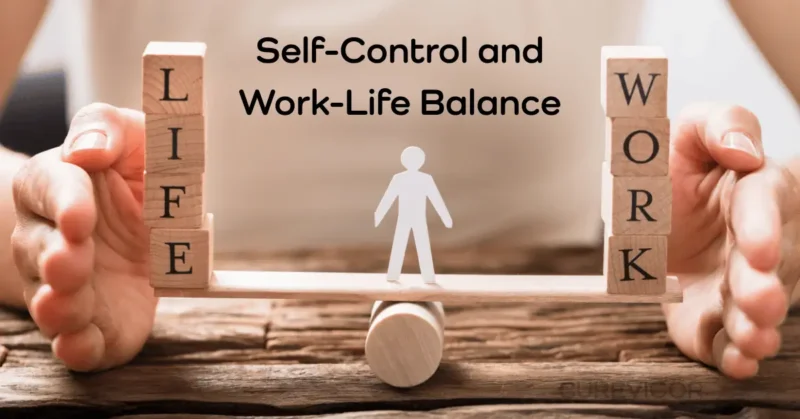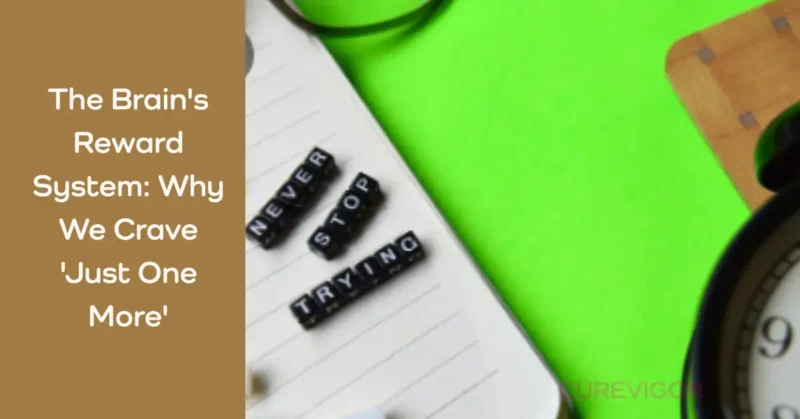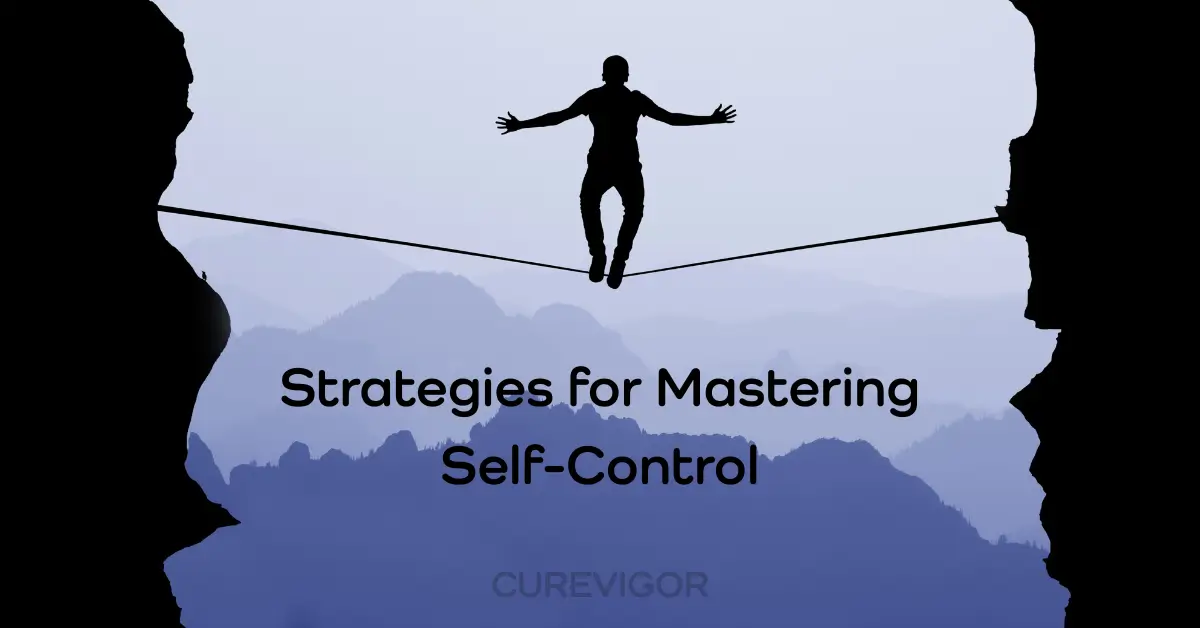Trapped in the “one more” cycle? Master self-control to escape burnout and create a true work-life balance.
Thank you for reading this post, don't forget to subscribe!Discover practical strategies for setting boundaries, prioritizing self-care, and leading a more fulfilling life. This is your guide to lasting productivity and peace.
You promise yourself, “just one more episode.” Then it’s 2 a.m.
You say, “Just one more email.” Suddenly, your family dinner is cold.
You commit to “just one more project.” Now your calendar is a nightmare of red.

Sound familiar? You are not alone. This is the “One-Challenge Trap.” It is the silent killer of productivity and peace. We believe one more task, one more yes, one more scroll will bring us success. Instead, it drains our energy.
It blurs the lines between our professional and personal lives. The culprit? A frayed and overworked muscle: Self-Control.
Mastering Self-Control is not about deprivation. It is about liberation. It is the fundamental skill for achieving a true work-life balance. This post will guide you through the psychology of this struggle.
You will learn actionable strategies to build unwavering Self-Control. You will discover how to create a life of fulfillment, not just frantic activity. Let’s dive in.
The Struggle for Self-Control
We have all been there. A well-intentioned “yes” can turn into a cascade of overcommitment. A quick check of our phones steals an hour of our evening.
The desire for immediate satisfaction overpowers our long-term goals. This is the human condition in a world of endless notifications and demands.
The struggle for Self-Control is real. It is exhausting. It feels like a constant battle between who you are and who you want to be. Without a strong sense of Self-Control, work-life balance becomes a mythical concept.
You live in a state of reaction. You respond to every ping, every request, every internal whim. This cycle leads directly to burnout, resentment, and a life that feels out of your control.
But understanding why this happens is the first step toward reclaiming your power.
The Psychology Behind Lack of Self-Control
Why is saying “no” so incredibly difficult? Why does that one cookie often lead to the entire bag? The answer lies deep within our own biology and psychology.
The Brain’s Reward System: Why We Crave ‘Just One More’
Your brain is wired for survival. Its ancient parts crave immediate rewards. This wiring helped our ancestors eat when food was available. It is less helpful when facing a pint of ice cream or an endless to-do list.
When you complete a small task, your brain releases a little burst of dopamine. This is the “feel-good” chemical. It creates a sense of pleasure and accomplishment.
Checking an email off your list feels good. Getting a “like” on social media feels good. This positive reinforcement trains your brain to seek out these quick hits.
“Just one more” is your brain’s way of chasing another dopamine hit. It is a powerful, biological pull. The problem is that these small wins are often empty calories for your mind.
They do not contribute to your deep, long-term goals. They simply keep you busy. Strengthening your Self-Control means learning to override this primitive reward system.
You must choose delayed, meaningful gratification over instant, fleeting pleasure.
The Cost of Poor Self-Control: Stress, Anxiety, and Burnout
What happens when you consistently lose the battle for Self-Control? The costs pile up quickly. They impact every area of your life.
Chronic poor Self-Control leads to stress. You miss deadlines. You make promises you cannot keep. Your work quality suffers.
At home, you are physically present but mentally absent. Your relationships strain under the weight of your distraction.
This constant state of stress fuels anxiety. You feel a low hum of worry about all the things you are not doing.
You lie awake at night with a racing mind. Your body remains in a heightened state of alertness. This is exhausting.
The final stage of stress is burnout, a condition characterized by mental, physical, and emotional exhaustion. Burnout results from prolonged and intense stress, leading to feelings of cynicism, inefficacy, and detachment.
When your Self-Control is depleted, you have no defenses left. You have no energy to set boundaries. You become a passenger in your own life. Recognizing this costly trajectory is essential for motivating change.
Strategies for Mastering Self-Control

The good news? Self-control is like a muscle. You can strengthen it with consistent training. You would not try to bench press 300 pounds on your first day at the gym.
Similarly, you cannot expect to develop ironclad Self-Control overnight. It takes patience, practice, and the proper methods.
Setting Clear Boundaries: The Power of Saying No
Boundaries are the physical manifestation of Self-Control. They are the rules you set for yourself and others. They protect your time, energy, and focus.
- Define Your Non-Negotiables. What are the absolute pillars of your well-being? Perhaps it’s a digital shutdown at 7 p.m. Maybe it’s no work emails on weekends. It could be a daily 30-minute walk. Write these down.
Treat them with the same importance as a meeting with your CEO. - Practice the Polite “No.” You do not need a long, elaborate excuse. A simple, “Thank you for thinking of me, but I can’t take that on right now,” is powerful and professional.
Remember, every time you say “yes” to one thing, you are saying “no” to something else—often your own peace of mind. - Schedule Your Focus. Use time-blocking. Dedicate specific chunks of your day to deep work. During these blocks, close all unnecessary tabs. Silence your phone.
Please let your colleagues know that you are unavailable. This is an active application of Self-Control that builds focus and efficiency.
Mindfulness and Self-Awareness: The Keys to Unlocking Self-Control
You cannot control an impulse you do not see coming. Being mindful involves paying attention to the present moment without passing judgment or criticism. It is your early-warning system for lapses in Self-Control.
- Recognize Your Triggers. What situations typically lead you astray? Does boredom lead you to social media? Does anxiety lead you to procrastinate with busywork?
Does a certain person’s request always make you overcommit? Mindfulness helps you spot these patterns. - Pause and Breathe. When you feel the urge to say “yes” against your better judgment, or to dive into a distraction, pause. Take three deep breaths. This creates a tiny space between the impulse and your action. In that space, your conscious, rational mind can intervene. This is where true Self-Control lives.
- Check In With Yourself. Several times a day, ask yourself: “Is what I’m doing right now aligned with my most important goals?” This simple question of self-awareness can snap you out of autopilot.
It re-engages your prefrontal cortex—the part of your brain responsible for executive function and, you guessed it, Self-Control.
Building True Work-Life Balance with Self-Control
Work-life balance is not a fifty-fifty split every single day. It is a dynamic harmony. It is the feeling of being fully present and engaged in whatever you are doing, whether at work or at home.
Self-control is the conductor of this orchestra. It ensures each section plays its part without drowning out the others.
Prioritizing Self-Care: Making Time for What Matters
This is the most misunderstood part of the equation. Self-care is not selfish. It is strategic. It is the foundation upon which your Self-Control and productivity are built. You cannot pour from an empty cup.
- Schedule Self-Care Like a Meeting. Block out time in your calendar for exercise, reading, hobbies, or simply doing nothing. Protect this time fiercely. This is not a “nice-to-have.” It is a mandatory recharge for your mental and physical batteries.
- Fuel Your Body and Mind. Self-control is an energy-intensive process. Make choices that support your energy levels. Prioritize sleep. Eat nutritious foods. Stay hydrated. When your body is tired and malnourished, your Self-Control is the first resource to deplete.
- Define “What Matters” for You. True work-life balance looks different for everyone. Does it mean coaching your kid’s soccer team? Does it mean having the energy for a date night?
Does it mean pursuing a personal passion project? Get clear on your “why.” Your self-control is motivated by a strong sense of purpose.
Creating a Supportive Environment: Surrounding Yourself with Positive Influences
Your surroundings greatly influence how you behave. Your willpower is a finite resource. Do not waste it fighting against a toxic environment. Instead, use Self-Control to design an environment that supports your goals.
- Curate Your Digital Space. Unsubscribe from distracting newsletters. Use website blockers during work hours. Turn off non-essential notifications. This reduces the number of decisions you have to make, preserving your Self-Control for more important things.
- Build an Accountability Network. Share your goals with supportive friends, family, or colleagues. These are people who will encourage you, not enable you. They will remind you of your boundaries when you are tempted to break them.
- Learn from the Best. Surround yourself with content that inspires growth. Read books on personal development. Listen to podcasts about productivity and mindfulness. Fill your mental space with ideas that reinforce the importance of Self-Control.
Sustaining Self-Control in the Long-Term
Building Self-Control is one thing. Maintaining it for a lifetime is another. Life is full of setbacks, surprises, and stressors. A long-term perspective is crucial. This is not about perfection; it is about progression.
Tracking Progress: Celebrating Small Wins and Learning from Setbacks
What gets measured gets managed. Tracking your progress provides motivation and valuable insight.
- Keep a Simple Journal. At the end of each day, jot down one or two instances where you successfully exercised Self-Control. Maybe you stuck to your time-blocking schedule.
Perhaps you chose a healthy snack. Maybe you gracefully declined an unnecessary meeting. Acknowledging these small wins reinforces the positive behavior. - Conduct “Setback Autopsies.” When you have a lapse—you binge-watched a show, you snapped at a colleague, you overcommitted—do not beat yourself up. Treat it as data.
Ask yourself: “What triggered this? What was I feeling? What could I do differently next time?” This transforms failure from a demotivator into a learning opportunity. - Focus on Consistency, Not Perfection. Some days your Self-Control muscle will be strong. Other days it will feel weak. That is normal. The goal is to be consistent in your practice, not perfect in your execution. Just getting back on track after a slip is a massive victory.
Practicing Self-Compassion: Being Kind to Yourself
This is arguably the most important strategy for long-term success. You cannot shame yourself into better Self-Control. Harsh self-criticism only increases stress and depletes your mental resources, making you more likely to give in to impulses.
- Talk to Yourself Like a Friend. If a friend made a mistake, would you chastise them? Not, of course. You would offer kindness and encouragement. Extend the same grace to yourself.
A simple, “That was a tough moment, but I’m learning and I’ll try again,” can change your entire internal narrative. - Understand that Lapses are Part of the Process. Building any new skill involves stumbling. Every lapse in Self-Control is a chance to practice self-compassion. It is a reminder that you are human.
This kind and realistic attitude actually builds resilience. It makes it easier to get back on track without spiraling into guilt. - Recharge Without Guilt. When you take time for self-care, be fully present. Do not spend your weekend worrying about Monday’s inbox. Trust that rest is a productive part of the success equation. Your renewed energy and focus will more than make up for the “lost” time.
Conclusion: Your Journey to Mastering Self-Control Starts Now
The “One-Challenge Trap” is a seductive lie. It promises progress but delivers chaos. The way out is through the deliberate, daily practice of Self-Control. This is not a rigid, joyless discipline.
It is the ultimate act of self-respect. It is the key that unlocks true work-life balance, profound productivity, and deep personal fulfillment.
You now have the map. You understand the psychological traps. You have a toolkit of powerful strategies. You know the importance of self-care, a supportive environment, and, above all, self-compassion.
The journey begins with a single, conscious choice. What is one small boundary you will set today? What is one trigger you will mindfully observe? What is one act of self-care you will prioritize?
Your time is your life. Spend it wisely. Master your Self-Control, and you master your destiny.
Ready to take the next step? Share your biggest challenge with Self-Control in the comments below. Let’s support each other in building more balanced and fulfilling lives.
Read more articles on Health & Balance.
You might like to read:

